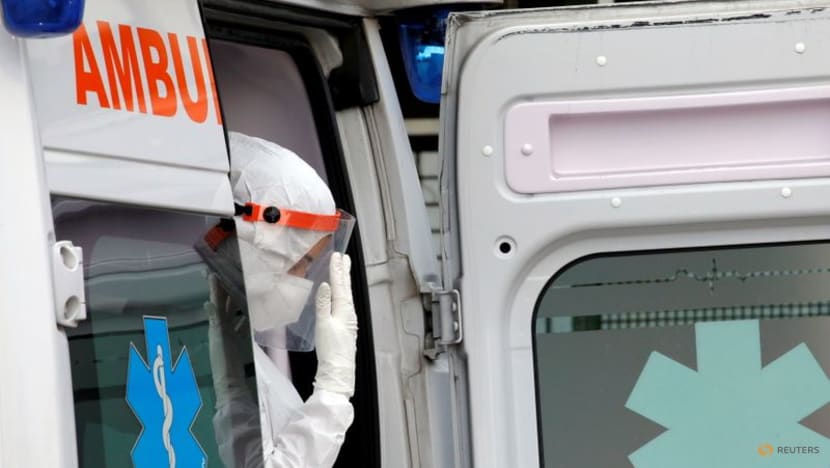EU launches health crisis body to prepare for future pandemic

A medical worker is seen on an ambulance at the entrance of the Cardarelli hospital, amid the outbreak of the coronavirus disease (COVID-19), in Naples, Italy, Nov 12, 2020. (Photo: REUTERS/Ciro De Luca)
BRUSSELS : The European Commission launched on Thursday (Sep 16) a health crisis body that will coordinate EU spending of almost €30 billion (US$35.3 billion) to prepare for a future pandemic.
The new health emergency preparedness and response authority (HERA) will assess potential health threats, promote research, ensure the availability of critical production and help build stockpiles.
If a new health crisis struck, it would activate emergency funding and help coordinate monitoring, procurement and purchase of medical equipment or treatments.
The authority is partly designed to avoid a repeat of the ad hoc measures taken by individual EU countries at the start of the COVID-19 pandemic, some of them inefficient, others coming at the expense of other EU members.
The new body will supplement other EU health agencies - the European Medicines Agency and the European Centre for Disease Prevention and Control.
European Commission Vice President Margaritis Schinas said both agencies had been strengthened, but that alone was not enough.
"Both agencies have a very important role to play but mainly after the pandemic hit us," he told a news conference.
"HERA will be our main instrument to coordinate preparedness and, if needed, (the) response ... This is what we are missing today."
HERA, which should be fully operational in early 2022, will have €6 billion from the EU budget for 2022-2027, with other programmes bringing total EU spending on health security to almost €30 billion.
Together with projects of individual EU members and business, spending could total €50 billion.










